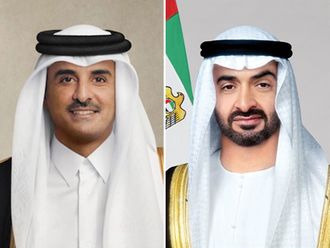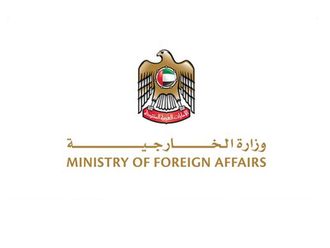LONDON: Dr Thani Ahmad Al Zeyoudi, UAE Minister of Climate Change and Environment, has attended a private lunch reception hosted by Prince Charles, the Prince of Wales, for “forgotten foods” to help raise awareness of the importance and urgency of conserving crop diversity for food and nutritional security around the world.
The event, held on the theme of ‘Food Forever Actions for a Resilient Food System’, took place at Clarence House, the Prince’s official London residence, and was attended by Ameenah Gurib, President of Mauritius and chair of the Food Forever Initiative, as well as government officials, food and financial sector representatives, farmers, chefs and NGO representatives.
Dr Al Zeyoudi conveyed the UAE leadership’s regards and appreciation to Prince Charles for being a most passionate and outspoken advocate of environmental protection and sustainable agriculture, as well as advocating the importance of crop diversity and the need for sustainable farming for many years.
Following the reception, Dr Al Zeyoudi took part in a round-table session themed ‘Getting Together for the Future of Food’, where participants discussed the issues affecting global food systems and the role of food diversity in supporting a more sustainable agriculture and nutritious diets.
In his remarks at the round-table, Dr Al Zeyoudi said that even though the UAE has limited domestic agriculture production and is highly dependent on food imports, the country has a long history of growing food and grazing livestock on its land.
Dr Al Zeyoudi indicated that around 90 per cent of the UAE’s food demands today are met with imported food, inevitably because of the massive development taking place and the population increase by over 3,000 per cent since the establishment of the country 46 years ago.
“Since the Bronze Age, our ancestors have used our scarce water resources wisely, and developed a well management system called “Tawi”, as well as a traditional water irrigation system known as “Falaj”. The Falaj system played an important role in supporting date farms that formed the basis of the traditional UAE economy, along with grazing, fishing and pearling,” he said.
“Last year, the UAE embarked on a year-long process to develop the country’s first food diversification strategy with technical support from the Food and Agriculture Organisation of the United Nations. Our objective is to ensure stability, availability and sustainability of food products across the whole food value chain in the UAE through diversification,” he said.










